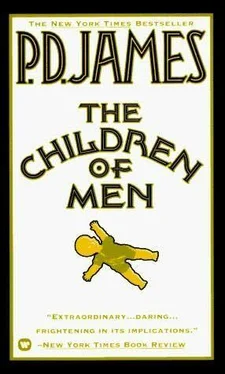Theo said: “Obviously there are social evils, but they are nothing to what is happening in other parts of the world. It’s a question of what the country is prepared to tolerate as the price of sound government.”
Julian asked: “What do you mean by sound government?”
“Good public order, no corruption in high places, freedom from fear of war and crime, a reasonably equitable distribution of wealth and resources, concern for the individual life.”
Luke said: “Then we haven’t got sound government.”
“We may have the best that is possible in the circumstances. There was wide public support for setting up the Man Penal Colony. No government can act in advance of the moral will of the people.”
Julian said: “Then we have to change the moral will. We have to change people.”
Theo laughed. “Oh, that’s the kind of rebellion you have in mind? Not the system but human hearts and minds. You’re the most dangerous revolutionaries of all, or would be if you had the slightest idea how to begin, the slightest chance of succeeding.”
Julian asked, as if seriously interested in his answer: “How would you begin?”
“I wouldn’t. History tells me what happens to people who do. You have one reminder on that chain round your neck.”
She put up her distorted left hand and briefly touched the cross. Beside that swollen flesh it seemed a very small and fragile talisman.
Rolf said: “You can always find excuses for doing nothing. The fact is that the Warden runs Britain as his private fiefdom. The Grenadiers are his private army and the State Security Police are his spies and executioners.”
“You’ve no proof of that.”
“Who killed Miriam’s brother? Was that execution after a proper trial or secret murder? What we want is real democracy.”
“With you at the head of it?”
“I’d make a better job of it than he does.”
“I imagine that’s exactly what he thought when he took over from the last Prime Minister.”
Julian said: “So you won’t speak to the Warden?”
Rolf broke in. “Of course he won’t. He never intended to. It was a waste of time getting him here. Pointless, stupid and dangerous.”
Theo said quietly: “I haven’t said I won’t see him. But I’ve got to take him more than hearsay, particularly as I can’t even tell him where and how I’ve got my information. Before I give you a decision I want to see a Quietus. When is the next one due to be held? Does anyone know?”
It was Julian who replied. “They’ve stopped advertising them, but of course the news does get round in advance. There’s a female Quietus in Southwold this Wednesday, in three days’ time. It’s off the pier, north of the town. D’you know the town? It’s about eight miles south of Lowestoft.”
“That’s not very convenient.”
Rolf said: “Not for you, maybe. But it is for them. No railway so they won’t get crowds, a long drive so people wonder if it’s worth the petrol just to see Granny despatched in a white nightie to the sound of ‘Abide With Me.’ Oh, and there’s just the one access by road. They can control how many people attend, keep an eye on them. If there’s trouble they can pick up the people responsible.”
Julian asked: “How long must we wait before you report back?
“I’ll decide whether to see the Warden immediately after the Quietus. Then we’d better wait for a week and arrange a meeting.”
Rolf said: “Leave it for a fortnight. If you do see the Warden, they may put a watch on you.”
Julian asked: “How will you let us know whether you’ve agreed to see him?”
“I’ll leave a message after I’ve seen the Quietus. Do you know the Cast Museum in Pusey Lane?”
Rolf said: “No.”
Luke said eagerly: “I do. It’s part of the Ashmolean, an exhibition of plaster casts and marble copies of Greek and Roman statues. We used to be taken there during art class at school. I haven’t been there for years. I didn’t even know that the Ashmolean was keeping it open.”
Theo said: “There’s no particular reason to close it. It doesn’t require much supervision. A few elderly scholars occasionally drift in. The opening hours are on the board outside.”
Rolf was suspicious. “Why there?”
“Because I like to visit it occasionally and the attendant is used to seeing me. Because it provides a number of accessible hiding places. Mainly because it’s convenient for me. Nothing else about this enterprise is.”
Luke said: “Where exactly will you leave the message?”
“On the ground floor, the right-hand wall, under the head of the Diadoumenos. The catalogue number is C38 and you’ll find that on the bust. If you can’t remember the name, you can remember the number, presumably. If you can’t, then write it down.”
Julian said: “It’s Luke’s age, that makes it easy. Will we have to lift the statue?”
“It’s not a statue, merely a head, and you needn’t touch it. There’s a very narrow gap between the base and the shelf. I’ll leave my answer on a card. It won’t be incriminating, a simple yes or no. You could telephone me for it, but no doubt you believe that might be unwise.”
Rolf said: “We try never to telephone. Even though we haven’t got started yet, we take normal precautions. Everyone knows that the lines are tapped.”
Julian asked: “And if your answer is yes, and the Warden agrees to see you, when will you let us know what he says, what he promises to do?”
Rolf broke in: “Better leave it for at least two weeks. Report on Wednesday, fourteen days after the Quietus. I’ll meet you on foot anywhere in Oxford, an open space might be best.”
Theo said: “Open spaces can be watched through binoculars. Two people, obviously meeting, in the middle of a park, meadow or university park draw attention to themselves. A public building is safe. I’ll meet Julian in the Pitt Rivers Museum.”
Rolf said: “You appear to like museums.”
“They have the advantage of being places where people can legitimately loiter.”
Rolf said: “Then I’ll meet you at twelve o’clock in the Pitt Rivers.”
“Not you; Julian. You used Julian to make the first approach to me. It was Julian who brought me here today. I’ll be in the Pitt Rivers at midday on the Wednesday two weeks after the Quietus and I shall expect her to come alone.”
It was just before eleven when Theo left them in the church. He stood for a moment in the porch, glanced at his watch and looked out over the unkept graveyard. He wished that he hadn’t come, hadn’t got involved in this futile and embarrassing enterprise. He was more affected by Miriam’s story than he cared to admit. He wished he had never heard it. But what was he expected to do, what could anyone do? It was too late now. He didn’t believe that the group was in any danger. Some of their concern had seemed close to paranoia. And he had hoped for a temporary reprieve from responsibility, that there would be no Quietus for months. Wednesday was a bad day for him. It would mean rearranging his diary at short notice. He hadn’t seen Xan for three years. If they were to meet again, it was humiliating and disagreeable to see himself in the role of supplicant. He was as irritated with himself as with the group. He might despise them as a gang of amateur malcontents, but they had outwitted him, had sent the one member whom they knew he would find it difficult to refuse. Why he should have found it difficult was a question he was not at present willing to explore. He would go to the Quietus as he had promised and leave them a message in the Cast Museum. He hoped that the message could justifiably be the single word NO.
The christening party was coming up the path, the old man, now wearing a stole, shepherding them with small cries of encouragement. There were two middle-aged women and two older men, the men soberly dressed in blue suits, the women wearing flowered hats, incongruous above their winter coats. Each of the women was carrying a white bundle wrapped in a shawl beneath which fell the lace-trimmed pleated folds of christening robes. Theo made to pass them, eyes tactfully averted, but the two women almost barred his way and, smiling the meaningless smile of the half-demented, thrust forward the bundles, inviting his admiration. The two kittens, ears flattened beneath the ribboned bonnets, looked both ridiculous and endearing. Their eyes were wide-open, uncomprehending opal pools, and they seemed worried at their confinement. He wondered if they had been drugged, then decided that they had probably been handled, caressed and carried like babies since birth and were accustomed to it. He wondered, too, about the priest. Whether validly ordained or an impostor—and there were plenty about—he was hardly engaged in an orthodox rite. The Church of England, no longer with a common doctrine or a common liturgy, was so fragmented that there was no knowing what some sects might not have come to believe, but he doubted whether the christening of animals was encouraged. The new Archbishop, who described herself as a Christian Rationalist, would, he suspected, have prohibited infant baptism on the grounds of superstition, had infant baptism still been possible. But she could hardly control what was happening in every redundant church. The kittens presumably would not welcome a douche of cold water over their heads, but no one else was likely to object. The charade was a fitting conclusion to a morning of folly. He set off walking vigorously towards sanity and that empty inviolate house he called home.
Читать дальше












